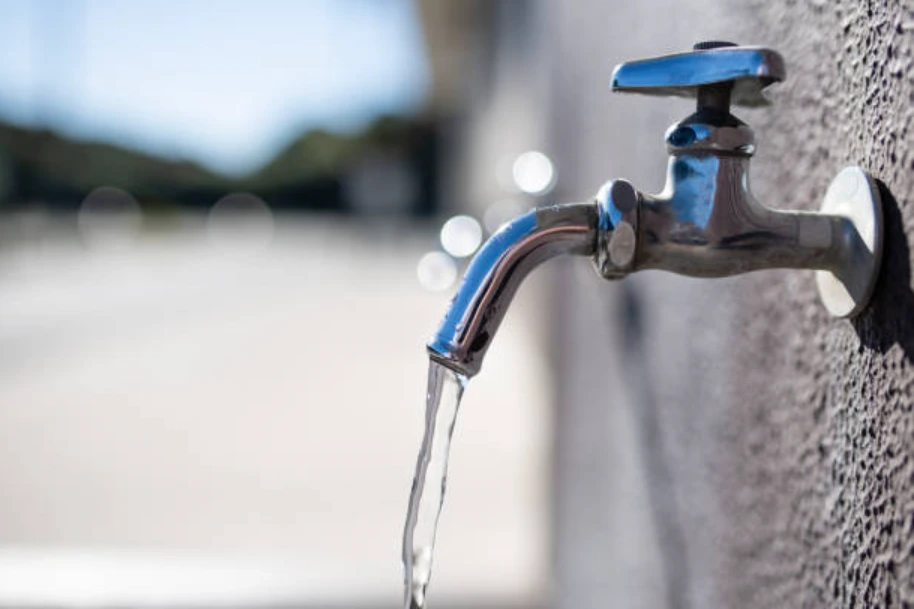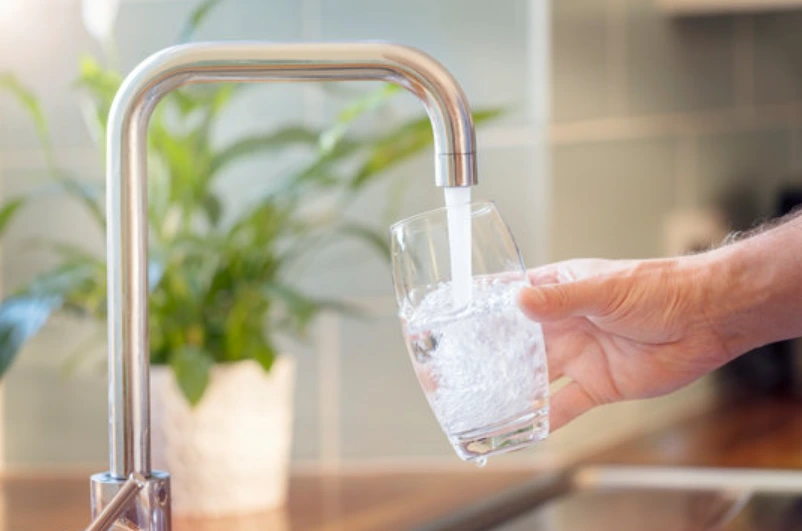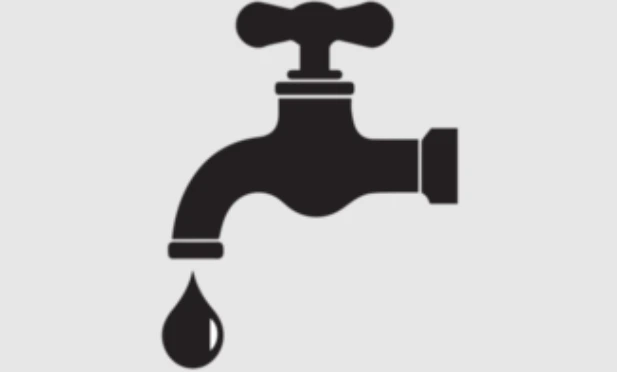INTRODUCTION:

In today’s blog, we’re discussing the quality and safety of tap water in Australia – a country traditionally associated with world-class infrastructure and a culture of promoting public health. If you are living in Australia or planning a visit, one of the biggest things to work out is whether you can safely drink the tap water and how it’s regulated to ensure safety. Here’s what to know when it comes to tap water in Australia, from whether or not it’s safe to drink, the safety measures in place, and how to keep your home’s water clean. Let’s dive into the facts!
What is Tap Water?
Tap water is the water that is delivered to homes, businesses, schools, and public buildings through the service lines that connect them to a complex system of pipes that deliver water from local sources to the local tap. In Australia, your tap water is filtered, treated, and is one of the cleanest and most pure drinking water sources in the world.
1. How is Tap Water Treated?
Treatment of tap water in Australia is sophisticated. It usually has multiple steps to strip out impurities: filtering to block solids, chlorination to kill germs, and sometimes ultraviolet light disinfection to take it to even lower levels of purity. In certain areas, fluoride is added to the water for purposes of dental health, while in the countryside, water treatment methods are often supplemented for better water quality.
2. Why Do People Prefer Tap Water in Australia?
Not only is tap water of a higher quality, but it’s also a cheaper and more environmentally friendly alternative to bottled water. Bottled water adds to plastic waste and can be less regulated than tap water. In Australia, you’re drinking water that goes through rigorous testing and treatment to ensure it’s safe, so tap water is not only safe, it’s sustainable.
Can You Drink Tap Water in Australia?
Australia has one of the purest and best-quality tap waters worldwide. For both city and regional locations, tap water in Australia is mostly safe to drink, as it passes stringent quality control and testing. It helps harbor water free of bacteria, metals, or chemicals.
1. Is Tap Water in Australia Safe to Drink?
Australia’s tap water is some of the cleanest in the world to drink. The Australian government monitors the safety of water in the country under the Australian Drinking Water Guidelines (ADWG), which contain strict quality standards for tap water. The NHMRC’s Australian Drinking Water Guidelines determine safe levels of everything from chemicals to water treatment.
2. Water Treatment Process
Filtered: The water is filtered to take away dust and big particles to depart clear and clear water.
Chlorination: It is the addition of chlorine to eliminate bacteria and microorganisms, which are harmful to health.
UV Treatment: Many water supplies disinfect water with ultraviolet (UV) light, which kills viruses and bacteria without adding chemicals.
Fluoridation: Many regions, especially in urban areas, have fluoride additives in their tap water to aid in dental health.
The tap water is also regularly tested for safety; any contaminants are promptly identified and removed.
Is Tap Water Safe to Drink in Australia?
Yes, the tap water in Australia is very safe to drink as it is subject to stringent health and hygiene standards. Australia’s drinking water is among the best quality in the world, thanks to well-maintained systems, regular testing, and state-of-the-art treatment.
1. Function of Local Water Authorities

Local water utilities and officials are instrumental in protecting tap water. They manage the surveillance, testing, and treatment of water before it gets to your home. These local authorities also often test the quality of the water to ensure its safety on a national level.
2. Public Water Safety and Monitoring
Australian tap water is tested by the nation’s water utilities for more than 300 different contaminants, such as microorganisms, heavy metals, and chemicals. If any harmful substances are discovered, we quickly take action to remedy the situation and ensure safety on the drinking water supply.
- Microbial Testing: Guarantees no pathogens are present.
- Chemical Testing: Analyzes for a broad spectrum of chemicals, including pesticides, heavy metals, and various pollutants.
- Physical Testing: Ensures the water is clear, clean, and free from particles.
Through these rigorous processes, tap water in Australia is guaranteed to meet the highest safety standards, making it one of the safest drinking options available.
Can You Drink Tap Water in Melbourne?
Melbourne, one of Australia’s largest cities, is also celebrated for its high-quality drinking water. When we turn on the kitchen tap, this water comes from pristine, protected catchments that are pollution-free to keep the water as clean and pure as nature intended.
1. The Origin of Melbourne’s Tap Water
Melbourne’s tap water is sourced from protected catchments from the Yarra and Thomson Reservoirs. Agricultural runoff and industrial pollutants do not enter these natural sources, so the water that reaches the treatment plants is relatively clean to start. The water is treated, based on standardized policies to ensure that it is safe to drink, a process that may include filtration, disinfection, or adding fluoride.
2. The Source of Melbourne’s Highly Rated Tap Water
Melbourne’s tap water has been celebrated for its quality for years, and it has racked up numerous accolades for taste and purity. In reality, Melbourne water is widely held to be some of the nation, if not the world’s, finest. It’s constantly monitored for numerous impurities and continuously treated to ensure it remains the safest and cleanest water possible.
Melbourne Water, together with other regional water providers, assesses and tests the water regularly to ensure that it is fit for drinking, and this extends to containing safe levels of chlorine and fluoride.
The Environmental and Economic Benefits of Drinking Tap Water in Australia
There are several efficient reasons why you should drink tap water in Australia, instead of purchasing bottled water.
1. Environmental Benefits
Bottled water causes plastic, a common pollutant and environmental hazard. You can save money by drinking tap water instead of bottled water, and you can also reduce the demand for bottled water and decrease the spread of plastic pollution. In addition, the “carbon footprint” of water production from the tap is much smaller than the bottled variety.
2. Economic Benefits
Bottled water is expensive, and purchasing it on a regular basis can be costly. Tap water, on the other hand, is free and also available at your sink. By choosing tap water, you are not just making a positive impact and saving both the environment and your wallet.
Is Tap Water in Rural Australia Safe to Drink?
Yes, tap water in the Outback is safe to drink. But rural areas may have different kinds of challenges with water treatment, since many use groundwater or local dams. Notwithstanding such differences, the same stringent testing and safety requirements also apply to the rural countryside.
1.Water Quality in Rural Areas
The gap between urban and rural access to tap water can be filled by a mix of local reservoirs, boreholes, and even natural sources. Water treatment processes in these self-contained areas may utilize sand filtration, chlorination, ultraviolet purification, and occasionally carbon filtration systems to ensure a safe water supply. In fact, rural areas often receive water that is the same, if not better, than the big cities in such places as Ireland or Scotland that have a national water treatment capacity.
2. Potential Challenges in Rural Areas
The water in rural Australia is treated and monitored for quality; however, sometimes the water may not be of the best quality, especially after long periods of rain and during floods. Boil water advisories are also deployed by officials to get people to drink safe water.
What to Do if You’re Unsure About Tap Water Quality in a New Area?
While tap water is safe to drink in Australia, you might come across an area where the water looks cloudy. In such situations, you can take a few steps to help you determine if the water is safe.
1. Check Local Water Quality Reports
Local water suppliers also provide routine water quality analysis results that are available to the public. These plans describe water testing results and any concerns about the quality of the water. If you’re not sure, refer to these reports to learn more about the safety of tap water in your area.
2. Consult the Locals or Authorities
Don’t be afraid to ask local people or phone the local water company if you are not sure about the water in a specific area. They hold a lot of indicative information for your area for water quality.
3. Boiling Water or Using Filters
If the water in a certain area looks suspicious, you can always boil it before using it for drinking, or use a filtration system. Boiling water may also help kill any microorganisms that are lingering, and a water filter can get out other contaminants.
Tap Water in Australia: The Ultimate Resource for Safe Hydration
Tap water in Australia stands out not only for its high-quality standards but also for its commitment to environmental and public health. With stringent regulations and continuous monitoring, tap water across the country is consistently tested to ensure it remains safe, clean, and accessible for all residents and visitors.
In metro cities like Melbourne, Sydney, or remote rural areas, they treat tap water using highly sophisticated systems and filters, and there is no need to worry about water safety anymore. If you’re worried about the taste or impact on your health, be assured that Australian tap water goes through extensive treatment, including chlorination, UV treatment, and fluoridation, to ensure its safety.
Common Myths About Tap Water in Australia
Despite the high quality and safety of tap water in Australia, there are still several myths that persist. Let’s take a look at some of the most common misconceptions:
- Tap Water is Contaminated: Australian tap water undergoes rigorous testing and treatment, ensuring it is free from harmful contaminants.
- Bottled Water is Healthier Than Tap Water: Bottled water is often just filtered tap water and doesn’t necessarily offer better health benefits.
- Tap Water Has a Bad Taste: While some regions may have harder water, the taste of tap water is generally clean and fresh. If you don’t like the taste, consider using a water filter.

Conclusion
To sum up, tap water in Australia is very safe, good, and healthy. It has nothing to do with strict regulations or treatments through which tap water goes before reaching cities like Melbourne or Sydney, etc. Whether it’s in the city or out in the country, the tap water is sanitized and tested often to keep it safe to drink, and so it is one of the safest things you can drink. So next time that you’re thirsty, switch to the tap. It’s healthy, affordable, and good for the environment!
_edited_9.png)